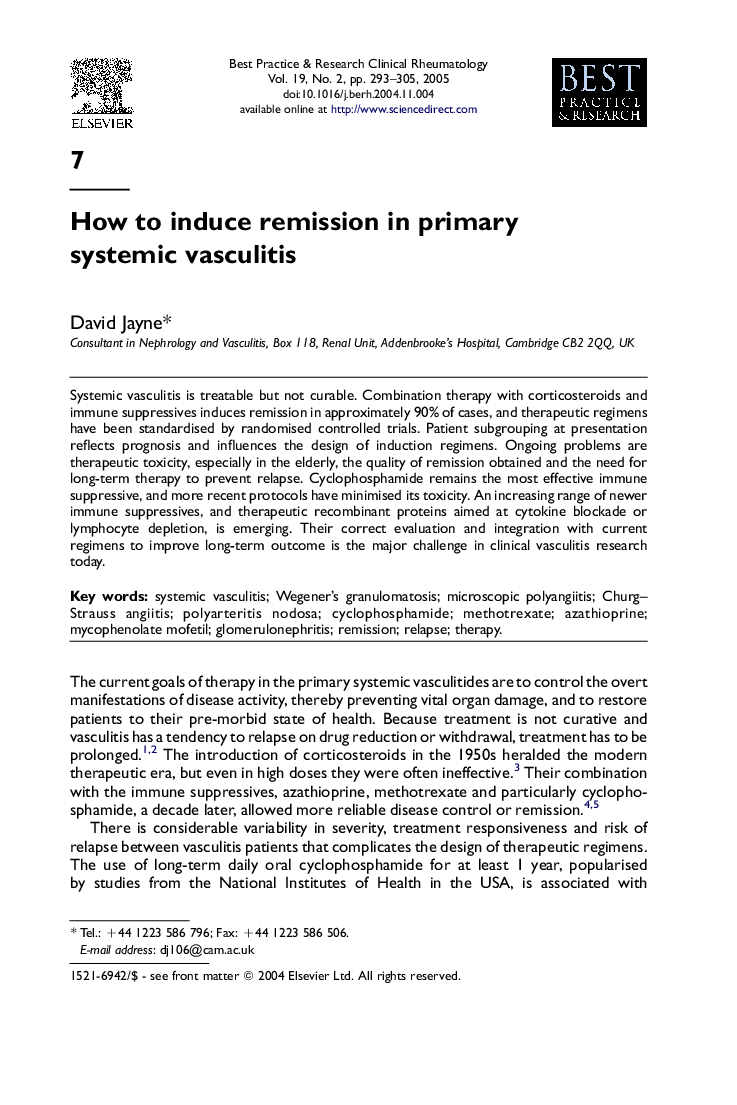| Article ID | Journal | Published Year | Pages | File Type |
|---|---|---|---|---|
| 9261927 | Best Practice & Research Clinical Rheumatology | 2005 | 13 Pages |
Abstract
Systemic vasculitis is treatable but not curable. Combination therapy with corticosteroids and immune suppressives induces remission in approximately 90% of cases, and therapeutic regimens have been standardised by randomised controlled trials. Patient subgrouping at presentation reflects prognosis and influences the design of induction regimens. Ongoing problems are therapeutic toxicity, especially in the elderly, the quality of remission obtained and the need for long-term therapy to prevent relapse. Cyclophosphamide remains the most effective immune suppressive, and more recent protocols have minimised its toxicity. An increasing range of newer immune suppressives, and therapeutic recombinant proteins aimed at cytokine blockade or lymphocyte depletion, is emerging. Their correct evaluation and integration with current regimens to improve long-term outcome is the major challenge in clinical vasculitis research today.
Keywords
Related Topics
Health Sciences
Medicine and Dentistry
Immunology, Allergology and Rheumatology
Authors
David Jayne,
